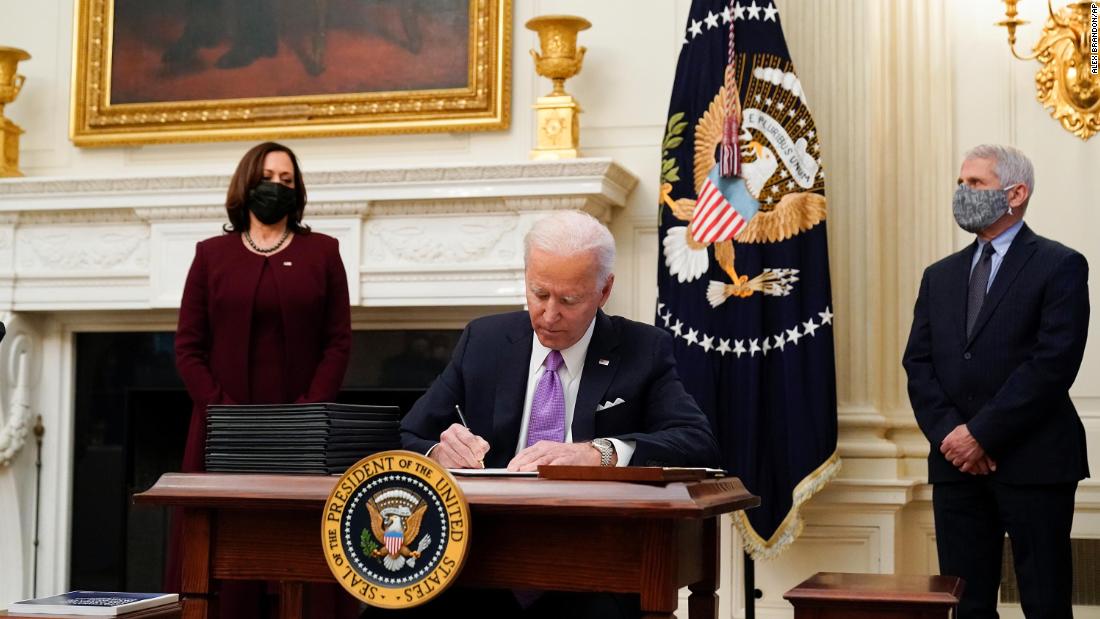(Citizen Free Press) — The series of decrees that United States President Joe Biden has signed are designed to represent a U-turn of the Trump administration’s policies on everything from covid management to climate change and the border wall.
But this yo-yo style of government is not how things are supposed to work in America. Big policy changes are supposed to move to Congress and then to the president’s desk, shaped by the compromises necessary for everyone to agree. Instead, with Congress absolutely mired in key issues for the past 15 years or so, Presidents have settled into a pattern of making executive policies on their own, resulting in them making and then undoing each other. on key issues. (That is, unless the courts intervene first.)
Presidents have power. The decrees that Biden signed this Thursday were intended to focus the federal government’s efforts on the covid-19 pandemic, create a national effort to get children back to school, encourage the use of masks, mobilize the Federal Agency for the Emergency Management (FEMA) and the National Guard, to help vaccines reach communities, tap into local pharmacies, and reintegrate the United States into the global effort to fight COVID.
The consequences of the decrees of past four years
But other decrees he signed, including the most important on Wednesday – rejoining the global effort on climate change and protecting undocumented children raised in the United States – are the version of restoring governance. Biden essentially undid what Trump had done to undo what Obama had done.
Consider the issue of immigration. Biden plans to advance a path to citizenship for millions of undocumented immigrants. Presidents have been trying to get a comprehensive immigration plan in Congress for 15 years.
A bill passed by the House of Representatives during the George W. Bush administration. A bill passed by the Senate during the Obama administration. But the legislation never passed through both houses. So President Barack Obama promised to protect undocumented children if they step out of the shadows under a program called Deferred Action for Childhood Arrivals (DACA). Many did. Then Trump tried to end that program, although the courts stopped it. Now Biden is trying to protect him.
Trump, who started with a Congress dominated by the Republican Party, came in with his own agenda involving a border wall. In reality, he didn’t even attempt the normal route, instead declaring a national emergency at the border to funnel money into his wall project. So Biden overruled Trump’s national emergency and stopped the wall.
And climate change. An existential threat deserves real legislation to address the problem seriously and effectively. But a coordinated climate change policy to reduce greenhouse gas emissions is, if anything, more difficult to achieve than immigration reform.
Other changing policies from previous
Think about this:
Bill Clinton put the United States in a global climate agreement. (Kyoto Agreement)
George W. Bush pulled the United States out of that deal.
Obama put the United States in a global climate agreement. (Paris Agreement)
Trump pulled the United States out of the Paris Agreement.
Biden is putting the United States back into the Paris Agreement.
It is no wonder that it is difficult for Americans and other countries to figure out where the United States is on climate change. It changes every few years. Biden places a transition away from fossil fuels as one of his top priorities. If he wants to achieve anything lasting, he will have to pass it in Congress, which at the moment is based on an evenly divided Senate, where one Democrat is West Virginia Senator Joe Manchin. West Virginia is a state that bases its economy on coal, and Manchin once ran a campaign ad in which he punched a hole in the middle of the emission rights bill. (Look it here.)
Legislation is difficult on purpose. It is what was supposed to generate compromise in our great and disorderly democracy. Instead, it has led to absolute stagnation. Even when Congress can do something great (Obamacare, for example), the effort to keep it from falling apart becomes so overwhelming that making reasonable accommodations becomes impossible.

